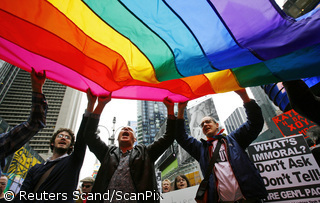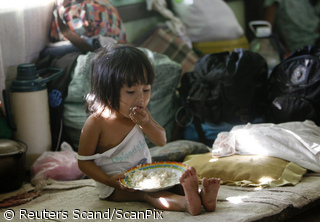Years after they were dispossessed under Saddam Hussein, Kurds are taking what they say is rightfully theirs, evicting Iraqi Arabs and seizing their homes in northern Iraq
Published:
18 April 2003 y., Friday
"We're homeless," complained Sadi Qader Muhammad, whose family was ordered out of their four-room house by a group of Kurds in this largely Kurdish city.
The new Kurdish occupants took over the house in the days of confusion immediately after the April 10 collapse of Baghdad's authority in Kirkuk. They claim the land was theirs before Saddam evicted them in the 1980s.
"It was our land," said Khader Rashid Rahim, a trader who plans to move his wife and seven children to this house. "Years ago, three of my brothers were killed by Saddam's government. They took all of our property and forcibly moved us away."
Of all the legacies of Saddam's years of rule, none might be quite so difficult and explosive as his removal of ethnic minorities from oil-rich areas. Years ago, Saddam intensified a long-standing Baghdad policy of Arabization by evicting thousands of Kurds living in the northern cities of Kirkuk and Mosul and handing their property over to Arabs from other parts of Iraq.
An estimated 400,000 Kurds were displaced from Kirkuk. Many ended up in refugee camps and dedicated their lives to retrieving their lost property.
Kurds have long vowed to return to their lost lands and homes once Kirkuk was freed. Kurdish leaders have sought to assure the United States and Arab countries that the process of return will be a lawful one.
Šaltinis:
foxnews.com
Copying, publishing, announcing any information from the News.lt portal without written permission of News.lt editorial office is prohibited.
The most popular articles
 Tiwonge Chimbalanga and Steven Monjeza are married, but in Malawi homosexuality is banned.
more »
Tiwonge Chimbalanga and Steven Monjeza are married, but in Malawi homosexuality is banned.
more »
 The World Bank today launched the fourth book in the critically acclaimed Moving Out of Poverty series, which provides bottom up perspectives on poverty and local realities by over 60,000 people living in 500 communities in 15 countries.
more »
The World Bank today launched the fourth book in the critically acclaimed Moving Out of Poverty series, which provides bottom up perspectives on poverty and local realities by over 60,000 people living in 500 communities in 15 countries.
more »
 Ten years ago, European leaders pledged to end poverty in the EU by 2010. As this deadline approaches, the goal is still some way off.
more »
Ten years ago, European leaders pledged to end poverty in the EU by 2010. As this deadline approaches, the goal is still some way off.
more »
 For many 2009 will be a historic year with the coming into force of the Lisbon Treaty, the outcome of the Copenhagen summit and the inauguration of the first black US president.
more »
For many 2009 will be a historic year with the coming into force of the Lisbon Treaty, the outcome of the Copenhagen summit and the inauguration of the first black US president.
more »
 Not answering the phone, celebrating Hogmanay and reading Dickens' Christmas Carol are just three seasonal traditions that MEPs shared with us.
more »
Not answering the phone, celebrating Hogmanay and reading Dickens' Christmas Carol are just three seasonal traditions that MEPs shared with us.
more »
 More and more people make their homes and own property in EU countries other than the one in which they hold citizenship.
more »
More and more people make their homes and own property in EU countries other than the one in which they hold citizenship.
more »
 European Parliament President Jerzy Buzek has made an televised Christmas and New Year address to European citizens, looking ahead to the challenges of the coming year.
more »
European Parliament President Jerzy Buzek has made an televised Christmas and New Year address to European citizens, looking ahead to the challenges of the coming year.
more »
 Lithuania takes the 1st position in the EU by the number of students in the country.
more »
Lithuania takes the 1st position in the EU by the number of students in the country.
more »
 Sergei Kovalev, former political prisoner turned activist for Russian human rights group Memorial gave an emotional and heartfelt address to the European Parliament on Wednesday 16 December.
more »
Sergei Kovalev, former political prisoner turned activist for Russian human rights group Memorial gave an emotional and heartfelt address to the European Parliament on Wednesday 16 December.
more »
 Strengthened passenger rights for travel by bus are an important item on the agenda when the Transport, Telecommunications and Energy Council (TTE) meets on 17–18 December.
more »
Strengthened passenger rights for travel by bus are an important item on the agenda when the Transport, Telecommunications and Energy Council (TTE) meets on 17–18 December.
more »